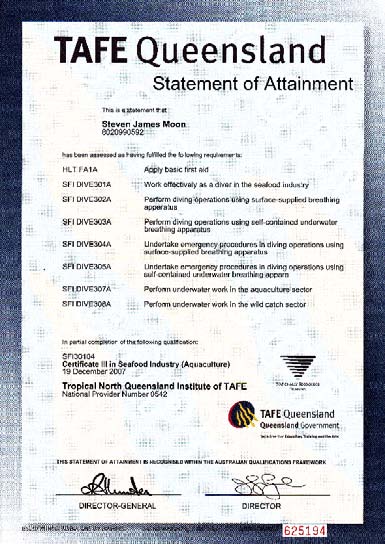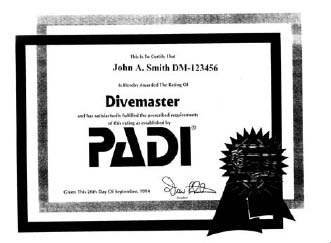In the realm of diving work, competency is paramount to uphold work health and safety standards. Individuals engaged in diving work must possess the necessary knowledge and skills to execute their tasks safely, especially considering the risks associated with working under pressure in a non-respirable environment.
WorkCover Queensland emphasizes the need for dive workers to demonstrate their competence before commencing any diving work. As a responsible party conducting a business or undertaking (PCBU), WorkCover Queensland underscores the importance of initially identifying the type of diving work being undertaken. Diving work is categorized into high-risk diving work, typically associated with structures, and general diving work, encompassing all other diving activities.
For high-risk diving work, WorkCover Queensland requires divers and dive supervisors to be competent according to the standards outlined in the Australian/New Zealand Standard AS/NZS 2299:2015 Occupational Diving Operations, Part 1 – Standard Operational Practice. For instance, in cases involving high-risk diving work with diving on surface supply to 30 meters, a diver could hold an Australian Dive Accreditation Scheme (ADAS) Part 2 Diver accreditation, and the dive supervisor could possess an ADAS Part 2 Dive Supervisor accreditation.

When it comes to general diving work, WorkCover Queensland recommends a worker-centered approach in selecting the most suitable competency options. Workers should assess the nature of the work and ensure that the chosen competency aligns with the specific requirements of the task. Considerations should encompass the diving environment, equipment and breathing gas used, decompression schedule, tasks to be performed, tools involved, and any other hazards associated with the job.
For general diving work, the competency comprises two essential components. Firstly, the diver must possess an appropriate qualification. This qualification can take the form of a statement of attainment from a relevant VET course, covering the necessary diving units of competency. Examples of subject streams include scientific diving under Conservation and Land Management (RTD), general diving through the Hyperbaric Operations stream (809) (e.g., an ADAS certificate), harvesting and aquaculture in the Seafood Industry stream (SFI), and recreational diving under the Outdoor Recreation stream (SIS).

A certificate from a dive training organisation that is the equivalent to Australian/New Zealand Standard AS/NZS 4005:2000 Training and certification of recreational divers, Part 2 – recreational SCUBA dive supervisor (e.g. a Divemaster certificate issued by the Professional Association of Dive Instructors – see example below).

Secondly the diver must have, through training, qualification or experience, acquired sound knowledge and skill that is relevant to their general diving work in relation to the following competency checklist:
- the application of diving physics
- the use, inspection and maintenance of diving equipment (including emergency equipment) and air supply of the type to be used in the proposed general diving work
- the use of decompression tables or dive computers
- dive planning
- ways of communicating with another diver and with persons at the surface during general diving work
- how to safely carry out general diving work of the type proposed to be carried out
- diving physiology and first aid.
A dive supervisor for general diving work must be competent to dive and have experience in the diving work to be supervised (e.g. as recorded in the diver's log book).
For workers engaged in general diving work, WorkCover Queensland offers two competency options tailored to specific circumstances.
Firstly, the incidental diving work option accommodates individuals whose regular responsibilities do not typically involve diving, and where the diving work is incidental to the overall business. Workers opting for this competency must possess solid knowledge and skills related to the competency checklist, backed by 15 hours of diving experience under specified depth conditions. The diving tasks must be limited, with certain restrictions such as a maximum depth of 30 meters, no decompression stops, and no use of mechanical lifting equipment. Additionally, the work must not extend beyond 28 days in a 6-month period and necessitates in-water supervision by another diver competent in general diving work.
An illustrative scenario is provided for clarity: consider an actor tasked with portraying a recreational diver in an underwater film sequence. The actor, although not a regular diver, undergoes an assessment by the PCBU to confirm the relevant knowledge, skills, and 15 hours of diving experience. To ensure safety, the actor is supervised in the water by a diver competent in general diving work.
Secondly, the limited scientific diving work option is designed for visiting overseas scientific divers who are competent in general diving work but may not fulfill the requirements of the general diving work competency option. These divers must have acquired sound knowledge and skills related to the competency checklist, along with 60 hours of diving experience under specified depth conditions. Unlike incidental divers, limited scientific divers do not require in-water supervision.
Consider a situation where an overseas-based scientific diver intends to conduct scientific diving work at an Australian research facility for two weeks. The PCBU reviews the diver's qualifications, experience, and diving work history to confirm their relevant knowledge, skills, and 60 logged hours of diving. Subsequently, the diver can proceed with limited diving work for scientific purposes.
WorkCover Queensland stresses the importance of maintaining written evidence for at least 12 months, demonstrating the competence of both the diver and the dive supervisor. Such evidence may include current qualifications, certificates, training records, assessment tools and outcomes, diver's logbooks, dive safety logs, and statutory declarations. The adequacy of the written evidence is crucial in affirming that the diver possesses the requisite knowledge and skills for safe general diving work, and the dive supervisor is suitably experienced for the role.
